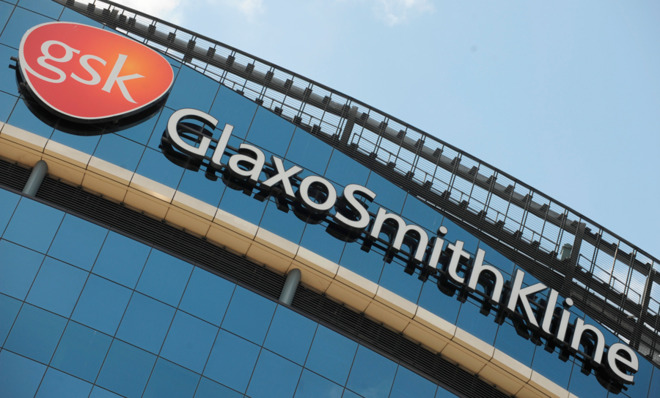Beware the fine print of Glaxo's big drug-marketing announcement
While GlaxoSmithKline is unilaterally stepping down in the drugmakers-paying-doctors arms race, it may only be a baby step


A free daily email with the biggest news stories of the day – and the best features from TheWeek.com
You are now subscribed
Your newsletter sign-up was successful
On Tuesday, British drugmaker GlaxoSmithKline vowed to unilaterally disarm in the controversial marketing war that has helped fuel the pharmaceutical industry's robust growth in the past 30 years. This is potentially a big step toward curbing conflicts of interest and doctor payola, especially if other drugmakers follow suit. But right now the fine print leaves plenty of wiggle room.
Here's what GSK is doing: First, it says it will stop paying doctors to promote its products at medical conferences, dinners, training classes, or other events for "audiences who can prescribe or influence prescribing." The company won't directly pay for doctors to attend such conferences, either. The other big change is to how GSK pays its sales force, dropping the practice of tying compensation directly to the number of prescriptions written by doctors each sales rep visits. Instead they'll be paid based on their technical knowledge, client feedback, and GSK's overall performance.
These are pretty big changes. Drugmakers paid doctors more than $1 billion in the U.S. last year, according to a May 2013 Financial Times report. Merck led the group ($226 million), followed by Eli Lilly ($219 million) and Pfizer ($162 million). In Britain, GlaxoSmithKline leads the pack, paying out about $4.5 million to doctors each year, out of the $65 million all drugmakers give to doctors for helping market their wares, according to an April 2013 study.
The Week
Escape your echo chamber. Get the facts behind the news, plus analysis from multiple perspectives.

Sign up for The Week's Free Newsletters
From our morning news briefing to a weekly Good News Newsletter, get the best of The Week delivered directly to your inbox.
From our morning news briefing to a weekly Good News Newsletter, get the best of The Week delivered directly to your inbox.
Presumably, GSK can put the "tens of millions" it pays to influence doctors to good use when the new rules kick in before 2016. And the company has already paid heavily for its marketing mistakes: A bribery investigation launched in China last summer has sent sales dropping sharply in the world's most populous nation, and GSK agreed to pay $3 billion in 2012 to settle U.S. criminal charges that it illegally promoted drugs and withheld important safety information.
So despite GSK chief executive Sir Andrew Witty's insistence that these new rules weren't prompted by the ongoing China case, it's clear that doctor payola practices have become bad for business. "In terms of gathering goodwill and repairing image, it's definitely a step in the right direction, and I would expect other large pharma companies to start looking at this policy as well," Kepler Cheuvreux analyst Sudip Hazra tells BloombergBusinessweek.
Here's where the fine print comes in. First, the new rules won't change much of anything in the large U.S. market: Under its deal with the Justice Department, GSK has already adopted the proposed global sales rules in the States, and a provision of ObamaCare mandates that pharmaceutical firms publicly disclose how much they pay doctors, with the amounts available in a searchable government database starting next fall. That has led the entire industry to ease up on the doctor junkets and speaking fees already.
Second, industry shifts make the education part of the sales mission less important: Well-informed specialists are prescribing more and more medications, replacing prescriptions from generalists and primary care physicians. Drugmakers have already laid off tens of thousands of sales reps since 2006, when the sector peaked at 105,000 sales jobs.
A free daily email with the biggest news stories of the day – and the best features from TheWeek.com
And third, it's not clear GSK's changes are as far-ranging as they sound. The company maintains that it still needs to educate doctors about its products, and says it will still "support fair, balanced, and objective medical education for health care professionals" through "unsolicited, independent educational grant routes." These grants have often been given out through for-profit companies that rely on drug company largess, says Harvard Medical School's Dr. Jerry Avorn, a critic of Big Pharma's marketing practices.
Caveats aside, kudos to Glaxo for getting ahead of the curve on cleaning up marketing practices that notoriously push up medical costs while boosting already bulging pharmaceutical coffers. Here's hoping the changes are real — and contagious to the whole industry.
Peter has worked as a news and culture writer and editor at The Week since the site's launch in 2008. He covers politics, world affairs, religion and cultural currents. His journalism career began as a copy editor at a financial newswire and has included editorial positions at The New York Times Magazine, Facts on File, and Oregon State University.
-
 ‘Those rights don’t exist to protect criminals’
‘Those rights don’t exist to protect criminals’Instant Opinion Opinion, comment and editorials of the day
-
 Key Bangladesh election returns old guard to power
Key Bangladesh election returns old guard to powerSpeed Read The Bangladesh Nationalist Party claimed a decisive victory
-
 Judge blocks Hegseth from punishing Kelly over video
Judge blocks Hegseth from punishing Kelly over videoSpeed Read Defense Secretary Pete Hegseth pushed for the senator to be demoted over a video in which he reminds military officials they should refuse illegal orders
